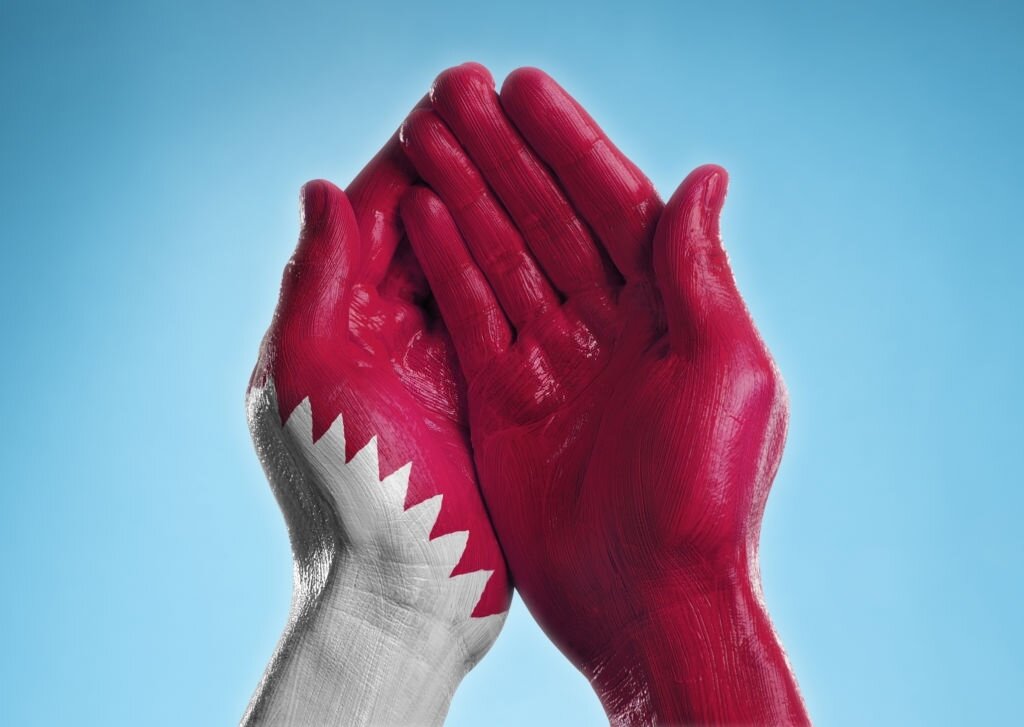Mideast: The Future of Foreign Direct Investments in Qatar
Paper Boat Creative
Qatar remains one of the most attractive countries in the world for foreign direct investments. But its role in regional geopolitics and its tense relationship with neighbors who accuse it of funding terrorism has created what could very well be a volatile economic situation. Qatar although one of the most riches countries per capita in the world will most likely experience decline in economic growth stemming from the impact of COVID-19. It relies on FDIs to attract foreign capital into the country and a threat to its ability to encourage FDIs may indeed pose a threat to the economic wellbeing of the country.
Qatar’s Economy and Foreign Investment
Foreign Direct Investments (FDI’s) are essentially investments made by foreign companies in businesses or corporations in another country whereby corporations fund investment in the same industry (horizontal FDI), in a relevant industry in the supply chain (vertical FDI), or even in a completely different trade (conglomerate FDI). One country whose FDI’s are becoming increasingly important to their economic success is Qatar. Currently Qatar has around 31 Billion US dollars worth of FDI’s even after a steady decrease from 2018. Inward flow has also seen a steady decrease while green-field investments (investments made by a parent company creating subsidiaries in a foreign country) have actually seen an increase in value. Qatar presents an attractive but also volatile environment for foreign investment as seen by the numbers above, this because although it currently offers opportune sources of investment from various industries also has a potentially destabilizing relationship with regional neighbors and remains a source of suspicion for many states.
Qatar remains a main exporter and producer of gas but with the impact of COVID-19 on its economy its growth may very well decline. Qatar actually has a more diversified economy compared to its Gulf neighbors but also relies on its ability to encourage foreign investment to simulate growth in the state; and has recently introduced reforms and incentives to further attract foreign companies. It’s largest FDI inflow contributors remain the United States, Japan, South Korea and Singapore, with Qatar’s main attractions being the gas industry but also financial services and infrastructure. Qatar’s FDIs, especially prompted by incentives for investors, have made Qatar a viable economic partner for much of the world. However, Qatar also has to contend with hostile neighbors in the Middle East as well as a less than stellar record when it comes to affiliations with unreputable actors, including terrorist groups. For Qatar to encourage economic growth post-COVID-19 as well as attract stable investment from FDIs it will need to address its controversial regional relationships as well as its involvement with unsavory entities.
Volatile Regional Relationships
Qatar and its economy are not isolated from wider regional happenings and indeed the geopolitical maneuverings of the Qatari government. Since 2017, many of Qatar’s Gulf neighbors have engaged in a full blockade of the country on grounds that Qatar is a state funder of terrorism across the Middle East, even beyond funding controversial groups like the Muslim Brotherhood (a important and contentious relationship in itself) and allegedly going so far as to fund ISIS or al-Qaeda. Indeed, Qatar has remained in controversy because of its support for Islamist-leaning organizations who may or may not engage in terrorism. Although sometimes evidence of this is somewhat dubious, the country has not made any substantial effort to combat terrorism nor has it condemned and captured Qatari nationals suspected of financing terror groups.
More recently the United States government has walked back from supporting those countries that engaged in a blockade of Qatar on the grounds that “there is a strategic alliance between the US and Qatar based on mutual respect and common interests”. Beyond its own economic incentives in investing in Qatar, it seems like the US is attempting to mend relations between the country and other Gulf states in a effort to present a united front against Iran and the so-called ‘Axis of Resistance’ operating throughout the Middle East. This presents its own incentive for Qatar to normalize relations between its neighbors and address its complicity in state-funded terrorism. Presenting an opportunity for a quid-pro-quo arrangement whereby Qatar will mend relations and remain in good standing with the United states for further, perhaps more substantial investment from FDIs in the country. Of course, this remains to be seen and will depend on Qatar’s own cost-analysis on the situation as it pertains to an opportunity to stimulate economic growth as opposed to furthering its own geopolitical or ideological ambitions.
Qatar’s foreign direct investment’s and its efforts to attract foreign companies to invest in the country and its several industries contrasted with its geopolitical troubles is exemplary of the ways in which economics in a country can not readily be isolated to strictly economic matters. Qatar’s dealing with bad actors in the region, its ties to Islamist organizations accused of conducing terrorist attacks, and its volatile relationship with its neighbors, all impact its economic wellbeing and indeed its ability to attract foreign investment. It cannot expect to remain in the economic clear if it does not factor into account diplomatic relations and its standing in regional geopolitics. And with COVID-19 undoubtedly stymieing its domestic projects for economic growth FDIs and attracting foreign investment will become increasingly important. Qatar therefore needs to reassess its diplomatic relations as well as its dealings with certain entities if it would like to see FDIs remain a source of stable capital inflow into the country.

